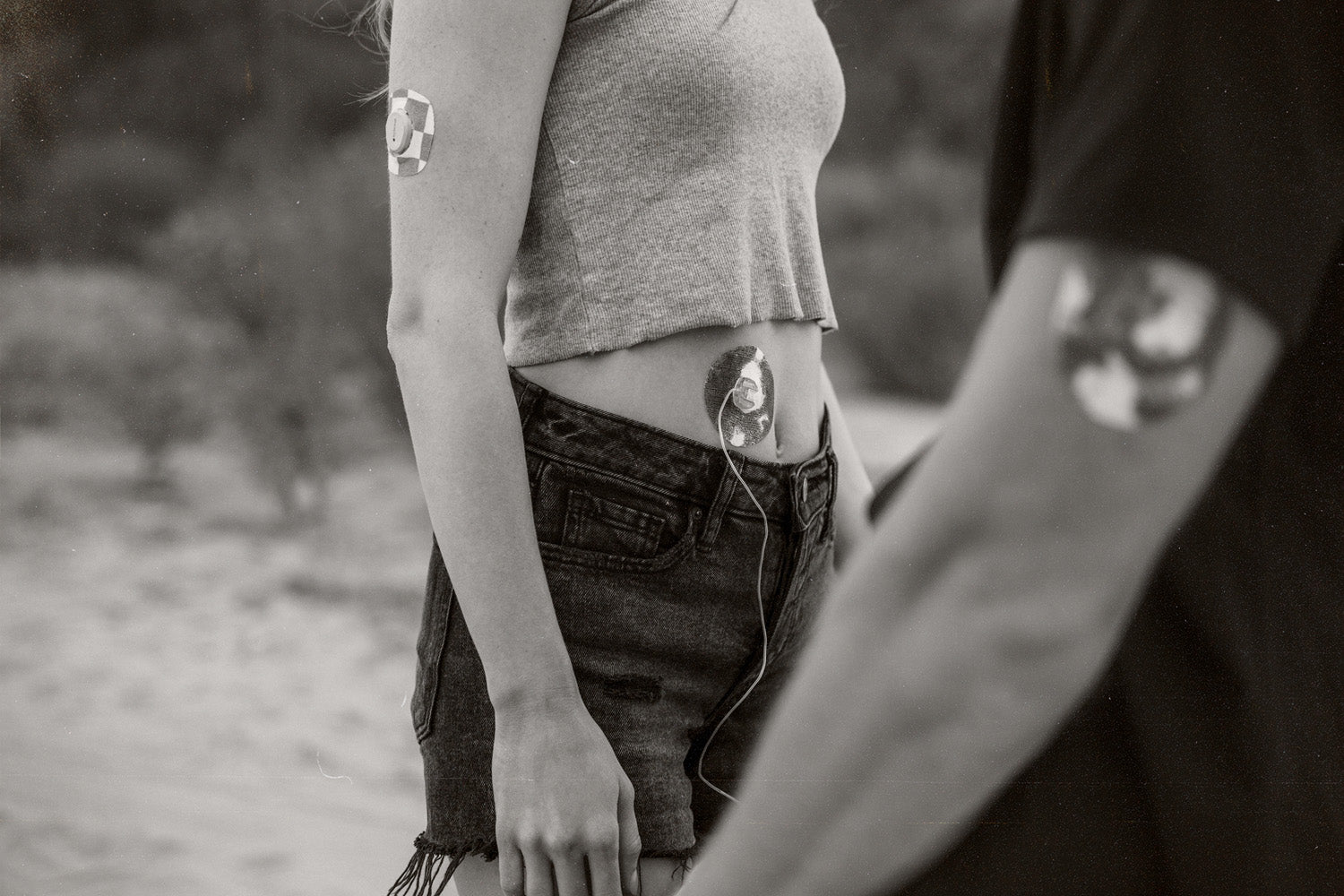 (Towfiqu barbhuiya/Unsplash)
(Towfiqu barbhuiya/Unsplash)
Depending on when you were diagnosed, diabetes may be your new normal or something you've had since childhood. A diabetes diagnosis opens up a whole new world of words and tools: What’s an insulin syringes? Why do I need an insulin pump? How about blood sugar meters? Adhesive tape for my Dexcom G6? What about ketone test strips?
It may seem overwhelming but know that you are not alone, and there are several resources to help you live fully and fearlessly on your diabetes journey. An excellent way to feel connected to the diabetes community is to listen to podcasts and join social media groups to hear others' stories and experiences.
According to the ADA (American Diabetes Association), 1.4 million people are diagnosed with diabetes in the US annually. Around 37.3 million Americans, or 11.3% of the population, had diabetes in 2019, and about 1.9 million Americans have type 1 diabetes, approximately 244,000 of those being youth.
Although diabetes is common in our society, there's still a lack of education surrounding it. An essential first step to dealing with your diabetes is to be your own advocate, be as educated as possible, and prepare for potential emergencies. It's also necessary to take action every day to prevent diabetes emergencies.
The three best ways to prevent a serious incident related to your diabetes are:
- Create a Diabetes Care Kit
- Perform frequent blood checks
- Make a meal and snack schedule and stick to it
- React fast to any signs of low blood sugar
Being diligent is vital, but sometimes emergencies still happen. What exactly is a diabetic emergency?
Blood Sugar Starting to Drop too Low
Low blood sugar, or hypoglycemia, can be severe. Signs that you may be reaching the danger zone leading to low blood sugar include:
- Hunger
- Confusion
- Shakiness
- Weakness/fatigue
If you or your child have diabetes and are experiencing these symptoms, do not ignore them. It's critical to catch low blood sugar immediately and deal with it appropriately. Always make sure you have emergency fast-acting sugar nearby to raise your blood sugar in a bind. Emergency snacks include juice, candy, or glucose tablets.
Blood Sugar Way Too Low
If one doesn't deal with mild low blood sugar, it goes into emergency mode quickly. This can lead to non-responsiveness, unconsciousness, seizures, or severe confusion. If your child may need glucagon, ensure you're prepared to administer it.
Blood Sugar Too High
If you have diabetes, you'll have high blood pressure from time to time, and that's normal. But extremely high blood sugar with ketones is dangerous and needs immediate action. Symptoms of dangerously high blood sugar include:
- Shallow, rapid breathing
- Fruity-smelling breath
- Vomiting
If you have a diabetic child, it's essential to educate them and help to prepare them for emergencies that may happen at school. It's so hard to let our kids go to school and trust they'll be OK, but it's our job to set them up for success in the event of high or low blood sugar.
Make sure to create a personal care plan to give to your child's teacher, along with emergency kits that have:
- Tools that check blood sugar
- Snacks to raise blood sugar quickly (candy, juice, glucose tablets, carbs)
- Emergency contact information
- Copies of current prescriptions, including eye care information
- Current dosage information and regular times they take medications
- Their basal rates, insulin-to-carbohydrate ratio, insulin sensitivity factor, blood sugar target, and correction factors for insulin pumps.
- Doctor's contact info
- A copy of their photo ID and health insurance card
- The make, model, and the serial number of their insulin pump or continuous glucose monitor.
If you want to go the extra mile, also include these items in your child's kit:
- Insulin pen, pen needles, insulin (in case pump fails)
- Spare batteries in case the meter needs a replacement
- Glucagon (if you allow a trained individual to administer it to your child)
- Ketone urine strips or ketone meter to measure ketones in the blood
Make sure your child's diabetic care plan indicates what it contains. We'd like to believe an emergency or disaster will never happen, but unfortunately, it is entirely out of our hands.
If you have diabetes and go to work every day, it's essential to have an emergency diabetes kit at work. Give a crash course to those you work closely with in case you need assistance during an emergency. Preparing properly for you or your child in an emergency will give you peace of mind in case something happens.
It's all about prevention, preparedness, and peace of mind.
Infographic
Living with diabetes is tough and challenging, especially for those who were recently diagnosed with the condition. It is important to know and be prepared at all times. Seek resources and a community that can help you with your journey. For emergencies, have everything ready and look out for symptoms to properly administer a solution. Learn about this and more in this infographic.































